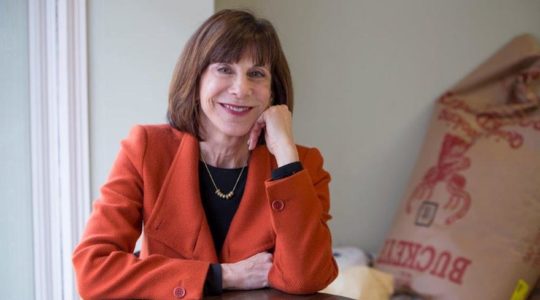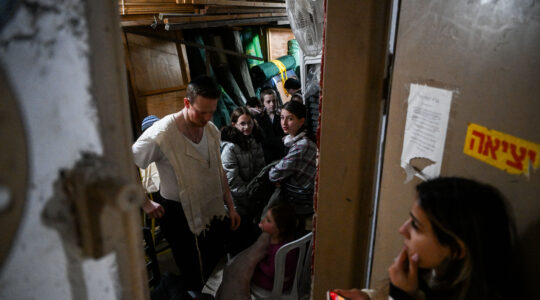(JTA) — A woman was elected mayor of Haifa for the first time, while the mayor’s race in Jerusalem will go to a runoff following municipal elections held across Israel on Tuesday.
In Tel Aviv, Ron Huldai will serve a fifth term as mayor after defeating his deputy.
In Jerusalem, voters will return to the polls in two weeks to choose between Municipal Council member Moshe Lion and former deputy mayor Ofer Berkovitch, who each received about 30 percent of the vote, failing to reach the 40 percent threshold to avoid a runoff.
Zeev Elkin, the Jerusalem affairs minister and Likud party Knesset member, was regarded as the front-runner and was backed by Prime Minister Benjamin Netanyahu, but finished with 20 percent of the vote.
Lion, a businessman, had the backing of Defense Minister Avigdor Liberman of the right-wing Yisrael Beiteinu party and the Sephardic Orthodox Shas party, as well as other haredi Orthodox factions.
In Haifa, Einat Kalisch-Rotem defeated incumbent Yona Yahav to become the first woman mayor of one of Israel’s three largest cities. Kalisch-Rotem, who garnered 55 percent of the vote, was backed by Labor Party leader Avi Gabbay but not the local Labor Party, and was supported by the left-wing Meretz party and the haredi community in Haifa.
Ten women were elected to head communities in Israel, three more than in 2013.
In Tel Aviv, Huldai defeated Asaf Zamir, 46-34 percent, despite running in third place until Stav Shaffir, who served in Knesset for the Zionist Union, dropped out.
In the largely haredi Orthodox city of Beit Shemesh, located about 20 miles west of Jerusalem, the race between incumbent Mayor Moshe Abutbul of Shas and Aliza Bloch, a member of the religious Zionist community, was too close to tell as of noon Wednesday. With 99 percent of the votes counted, some 250 votes separated the candidates. The municipality was preparing on Wednesday to count ballots cast by soldiers on their bases.
Following the 2013 elections, the city was forced to hold a repeat election after the results were invalidated due to voter fraud. Abutbul, then the incumbent, won both the first and repeat election.
In recent years, the city of 114,000 has become a flashpoint for conflicts between the haredi community and its secular and Modern Orthodox populations. Conflict has arisen, for example, over restrictions on women’s dress and gender-segregated seating on public buses. In a widely publicized incident in 2011, an 8-year-old Orthodox girl was spat on by haredim on the way to school for her perceived immodest dress.
Some 60 percent of eligible Israeli voters, or about 4 million people, voted on Tuesday, up 10 percent from 2013. This year, Election Day for the municipal voting was a national holiday for the first time, as it is for national elections.





